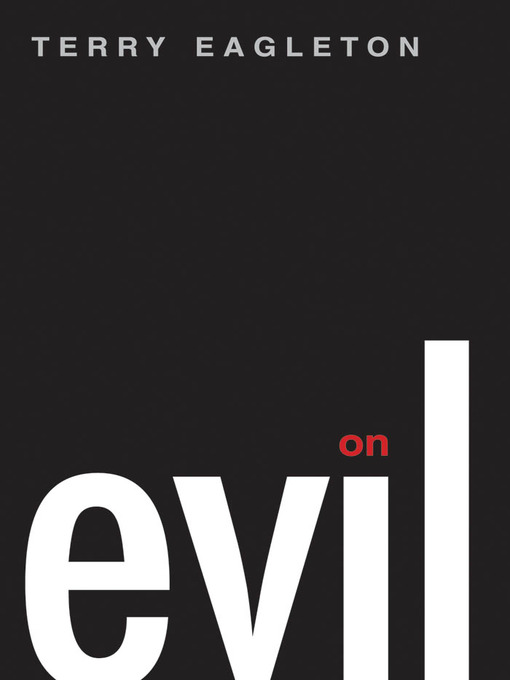
On Evil
- اطلاعات
- نقد و بررسی
- دیدگاه کاربران
نقد و بررسی

February 22, 2010
An engaging if ultimately unsatisfactory argument in favor of the reality of evil by one of Britain's most distinguished Marxist literary critics. Analyzing some of Western literature's major pronouncements on evil from Thomas Aquinas to William Golding, Eagleton (Reason, Faith and Revolution
) pieces together what he sees as the defining features of evil in a rather unsystematic way, before grounding his own vision of evil in Freud's notion of the death drive, describing evildoers as suffering from “an unbearable sense of non-being” which must “be taken out on the other.” Despite its undeniably enjoyable verve and wit, the book's claims are undermined by a rather arbitrary use of source material as well as a belated and inadequate articulation of its major theoretical claim. Muddy talk about different levels of evil and an undeveloped but evidently important distinction between wickedness and evil suggest that the author's notions on the topic would be better served by a larger, more sustained work. Nonetheless, as an attempt to take seriously the reality of extreme wrongdoing without recourse to either religiously grounded certitudes or a total sociological determinism, it offers a promising alternative.

April 1, 2010
Eagleton here distinguishes wickedness, i.e., doing bad things, from genuine evil. The latter, he holds, is a rare phenomenon that involves a will to nothingness; the individual embodying evil views existence as repulsive and desires pure annihilation. By contrast, wickedness is a not unusual phenomenon that may stem from bad historical conditions, and we ought not to judge the potential of humanity by what takes place under the repressive social systems that exist today. Eagleton does not discuss in detail the nature of social repression, as he conceives it, but instead devotes most of the book to evil as portrayed in works by, among others, William Golding, Thomas Mann, and Shakespeare. In particular, his sensitive analysis of "Macbeth", which concentrates on the three witches, is well done. Eagleton, who displays a wide knowledge of philosophy and theology and draws on both Schopenhauer and Freud's death drive to draw out his account, combines a Marxist and a liberal Catholic sensibility in an unusual way. VERDICT Highly recommended for anyone interested in the intersection between literature, philosophy, and religion.David Gordon, Bowling Green State Univ., OH
Copyright 2010 Library Journal, LLC Used with permission.

March 15, 2010
In the altogether excellent Reason, Faith, and Revolution (2009), Eagleton wondered how it was that the most unlikely people, including myself, were talking about God. Here he talks about God again, pretty much willy-nilly, given a topicevilso antonymically correlative to the deity. To his credit, he begins by considering personal, psychological evil and throughout draws far more on secular literature and philosophy than on scripture and theology. From Goldings Pincher Martin (1956) and Greenes Brighton Rock (1938), he draws a conception of evil as nullity, as radical lack of emotion and sympathy. Constant negation, characteristic of the narrator of Flann OBriens The Third Policeman (1967), and the radical freedom added to negation by Adrian Leverkhn in Manns Doktor Faustus (1947) broaden the idea, and the witches of Macbeth and Othellos Iago add obscene enjoyment to it. Kierkegaard and Dostoyevsky are adduced before Eagleton somewhat surprisingly pronounces that evil is rather rare; more common and troubling is plain wickedness, like destroying whole communities for financial gain. An absorbing, stimulating, awfully entertaining discussion.(Reprinted with permission of Booklist, copyright 2010, American Library Association.)




دیدگاه کاربران